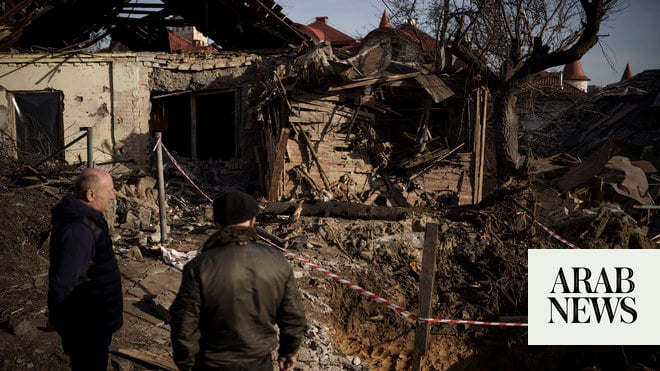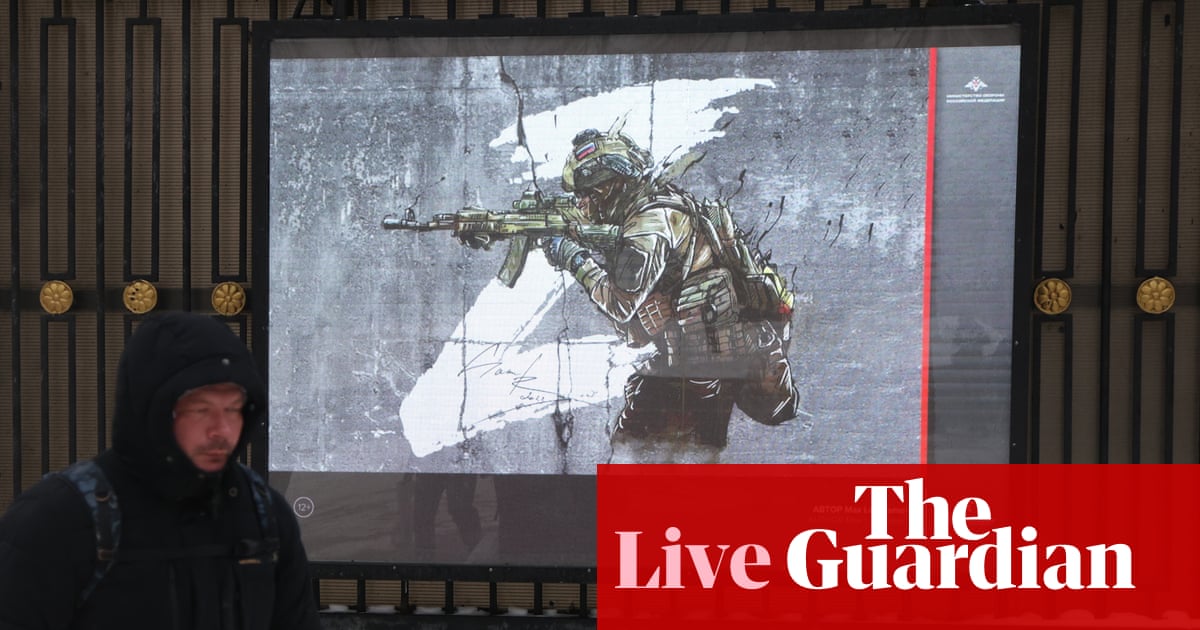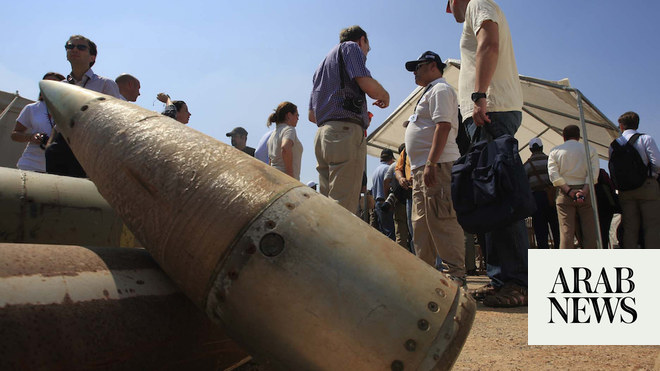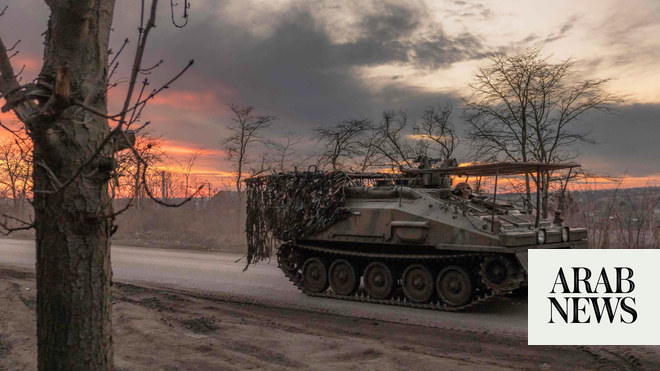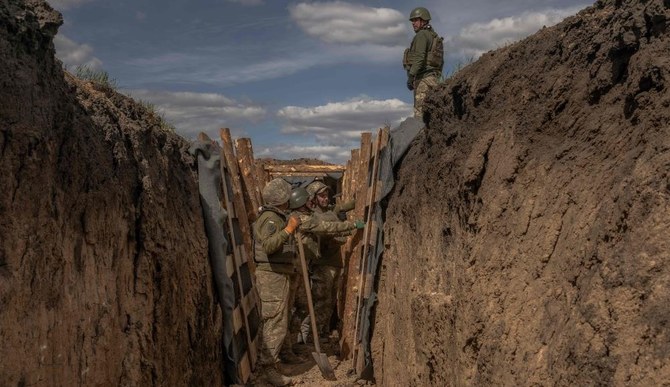
At the 11th hour, the US Congress last month approved the long-awaited bill to provide essential support to Ukraine. The delays, however, have led to severe shortages in ammunition and air defenses, allowing the Russian president to appear happy and self-assured while his soldiers made some tactical advances that gave Russia the upper hand across the long front line.
At the same time, Ukrainian President Volodymyr Zelensky and his military commanders were starting to consider defeat, sending messages that Ukraine could, as a result of aid delays, lose the war. The Russian war on Ukraine, which is in its third year, still lacks a resolute and robust response from a fractured Western camp that is busy making announcements and giving assurances instead of providing a stable stream of ammunition and equipment that could achieve the goal of holding back Russia, if not pushing it back, as Kyiv desires.
As aid supplies from the US have resumed, one wonders if President Vladimir Putin will remain comfortable with his “special operation,” which has become a war of attrition. If anything, the current stalemate is likely to persist as both sides grapple with their handicaps. This risks lengthening the war for all its protagonists, short of a breakthrough or a miracle.
The Ukrainians have no doubt fought with valor and managed to make up for their deficiencies with their enthusiasm, high morale and the erratic supplies of Western aid in their fight against a superior neighbor. Though they will remain outnumbered, outgunned and ground down by a relentless Russia, their best hope is for their leadership and allies to provide more in terms of ammunition, air defenses, equipment and manpower. This can help them regain some ground and restore some of their lost momentum due to the failure of their 2023 spring-summer offensive.
If anything, the current stalemate is likely to persist as both sides grapple with their handicaps.
Mohamed Chebaro
But that will be a tall order. Short of Kyiv fixing its chronic soldier shortage by reducing the age of mobilization, all the new US weapons and ammunition will not be useful. Stories of exhausted troops are permeating through the trenches all along on the front line. Ukraine’s recruitment efforts will also continue to stumble if Europe and the US fail to speed up and stabilize the free flow of aid, supplies and advanced technology. The Ukrainians continue to push for more Patriot air defense batteries, the long-awaited F-16 fighter jets and more long-range missiles to overcome the superior Russian firepower and allow it to target supply lines and bases far away from the front lines.
It is likely to take time for Ukraine to recover from the difficult first few months of this year, but time is not on its side. It needs to recover and recruit, train and deploy new units before it can start achieving some gains come the autumn to help justify the US’ assistance.
All that is likely to be slow and may not turn the tide on Putin’s forces, which have their own challenges to contend with. If anything, the many months of war have exposed Russia’s military limitations and threatened its superpower status. This is despite its huge defense budget, which has surpassed 6 percent of gross domestic product, or $109 billion this year, allowing Russia to produce two-and-a-half times the quantity of artillery and multiple launch systems than previously and as much as 60 times more of certain types of munitions. These Russian advantages are no secret, but most experts have long claimed that Moscow has failed to turn its superior firepower into a significant breakthrough due to its limited availability of advanced and high-precision weapons.
Such experts insist that Western sanctions, though far from watertight, have made it harder for Russia to source high-tech components for drones, smart munitions, guided bombs and high-precision missiles. Moscow’s larger weapons arsenal and access to manpower has failed to give it a radical advantage over Ukraine’s more modern and accurate artillery and other ammunition.
Over recent months, the volume of bombs raining down on Ukraine has retreated from 60,000 shells a day at the start of the war to just under 10,000 a day, according to a Washington think tank. This indicates that Russia has logistical and replenishment challenges, despite its ramped-up production and the supplies it has received from North Korea and Iran.
Russia will always have a manpower advantage, whereas Ukraine struggles to recruit. Moscow is said to be mobilizing nearly 30,000 fresh troops a month, increasing its total number deployed to nearly 500,000. And where Moscow’s cause for the war might not be very convincing among potential new recruits, money and bonuses remain the key driver, to the point that Ukrainian troops keep complaining about the unstoppable waves of infantry attacks on their positions.
New US and European aid has, for the past two years, challenged all of Russia’s tactics in this fight, but both sides today look resigned to fortifying their current positions. The conflict seems to have become attritional for both sides. Russia still believes it has time on its side, as it hopes to see more EU and US support peel off, especially if Donald Trump returns to the White House in November.
All the aid Ukraine receives is not likely to remove the advantages won by Russia in the last few months, at least not until next year. Russia’s numerical superiority is also unlikely to tip the balance, as it is not easy to replace commanders or mid-ranking lieutenants and sergeants or to mount effective attacks to break through the front lines, as the Russians desire. This is why both sides’ deficiencies are likely to see another year of frozen front lines, while a drive for peace remains elusive.
Mohamed Chebaro is a British-Lebanese journalist with more than 25 years’ experience covering war, terrorism, defense, current affairs and diplomacy. He is also a media consultant and trainer.
Disclaimer: Views expressed by writers in this section are their own and do not necessarily reflect Arab News" point of view





